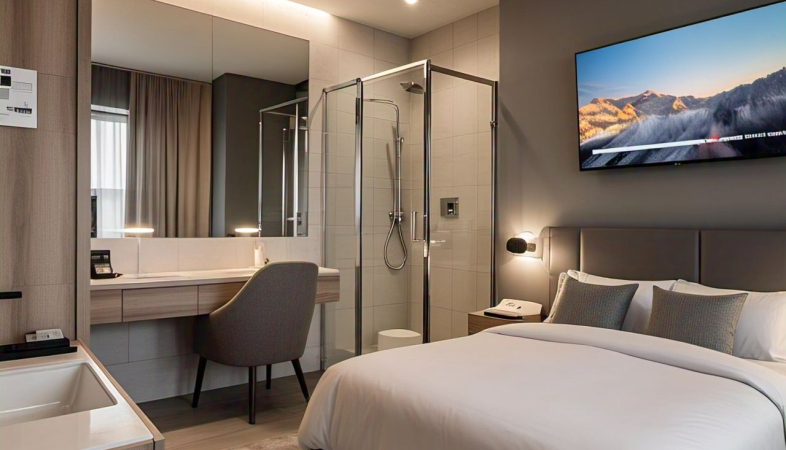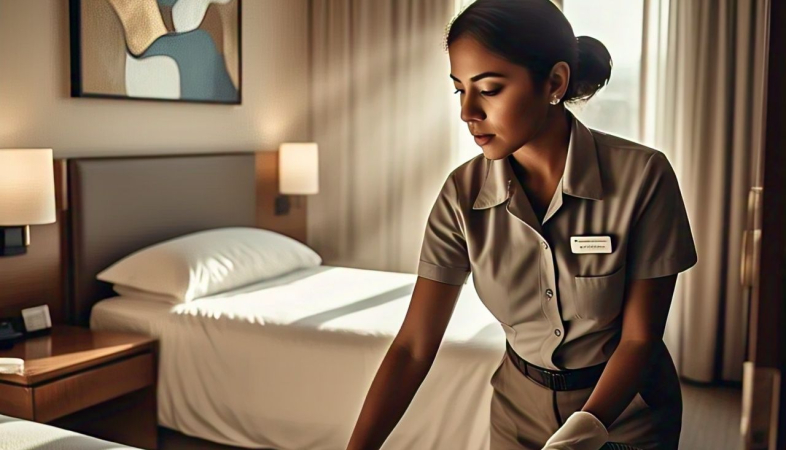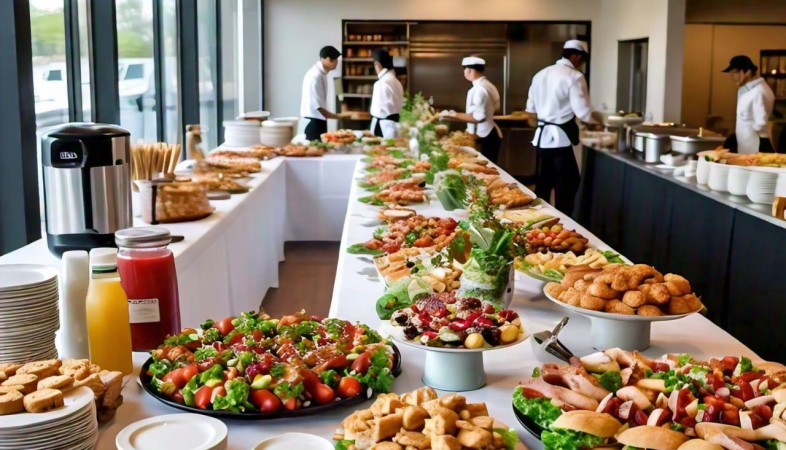How Smart Technology Is Revolutionizing Hotel Room Designs
As guests increasingly seek out technology-driven experiences, hotels that embrace these innovations are setting themselves apart from the competition.
The hospitality industry is constantly evolving to meet the
needs of an increasingly tech-savvy and convenience-oriented clientele. As
technology continues to advance, one of the most noticeable shifts has been in
the design of hotel rooms. Smart technology is transforming not only how rooms
look but also how guests interact with them, making their stays more
personalized, comfortable, and efficient. The integration of smart technology
into hotel room designs is creating new opportunities for hotels to differentiate
themselves and offer an enhanced guest experience.
One of the most prominent changes is the use of smart devices that allow guests to control various aspects of their room environment with ease. The days of manually adjusting thermostats or flicking light switches are fading as smart thermostats, lighting systems, and window shades take center stage. With the touch of a button or a simple voice command, guests can adjust the room temperature, lighting, and even the curtains to their preferred settings, creating a customized atmosphere. This level of convenience enhances comfort and empowers guests to feel more in control of their environment.
Voice-controlled assistants, such as Amazon Alexa or Google Assistant, are becoming standard in many hotel rooms. These voice-activated devices offer guests the ability to control room features like lighting, temperature, and entertainment systems simply by speaking. They can also provide information about hotel services, local attractions, or weather updates, further enhancing the guest experience. For hotel operators, these devices offer an opportunity to improve operational efficiency by enabling guests to make requests or ask questions without having to call the front desk.
In addition to convenience, smart technology is also improving the in-room entertainment experience. Hotels are incorporating high-tech entertainment systems that allow guests to stream content from their own devices to the room's television, access an array of on-demand movies, or enjoy interactive features. Smart TVs can sync with guests’ mobile devices, enabling them to watch their favorite shows or movies without the need for complicated remotes or external devices. This seamless entertainment experience not only adds value to the guest’s stay but also caters to the growing demand for personalization and on-demand content.
Another key element of smart technology in hotel room design is the integration of smart security features. Keyless entry systems that use smartphones or keycards equipped with Bluetooth technology are becoming increasingly popular. These systems allow guests to check in and access their rooms without the need for physical keys or cards, streamlining the check-in process and reducing contact points for enhanced security. Additionally, smart locks can be monitored and managed remotely, providing hotel staff with real-time access and control over room security. This increased level of security offers peace of mind to guests and ensures the safety of their belongings.
The implementation of energy-efficient smart technology is also revolutionizing the way hotels approach sustainability. Smart thermostats and energy management systems help reduce energy consumption by adjusting room temperatures when guests are not present, ensuring that the heating or cooling systems are operating efficiently. Smart lighting systems can detect movement and adjust the lighting based on occupancy, further reducing energy waste. These sustainability-driven innovations not only benefit the environment but also contribute to cost savings for hotels.
Smart technology is also enhancing the overall guest experience by offering convenience and ease of use. For example, smart mirrors with built-in lighting and touch controls allow guests to adjust lighting levels, check the time, or view weather updates while getting ready. Smart minibars can track inventory in real time and notify guests when items need restocking. In-room tablets and apps can provide guests with instant access to room service, concierge services, and hotel amenities, allowing them to make requests or inquire about services without leaving the comfort of their room.
Hotels that integrate smart technology into their room designs not only improve the guest experience but also benefit from increased operational efficiency. By automating routine tasks, such as adjusting room temperatures or managing lighting, hotels can streamline operations and reduce the need for manual intervention. This allows hotel staff to focus on more complex tasks, ultimately enhancing the overall quality of service provided to guests.
The combination of convenience, efficiency, and personalization that smart technology brings to hotel room designs is undeniably transforming the hospitality landscape. As guests increasingly seek out technology-driven experiences, hotels that embrace these innovations are setting themselves apart from the competition. By enhancing comfort, security, sustainability, and entertainment options, smart technology is helping to create the modern hotel room—a space that not only meets but exceeds the expectations of today’s tech-savvy travelers.
.png)








 at Unique Resort & Lifestyle.jpeg)







.jpeg)












